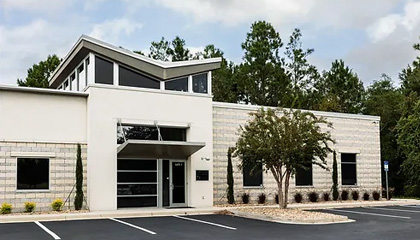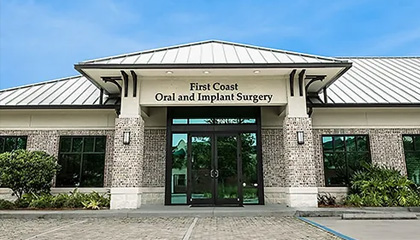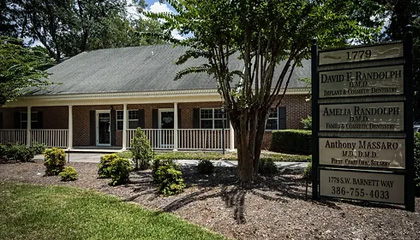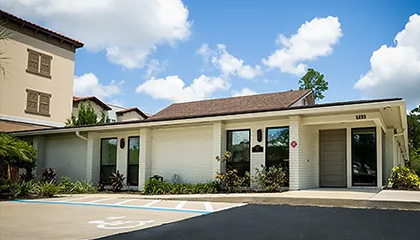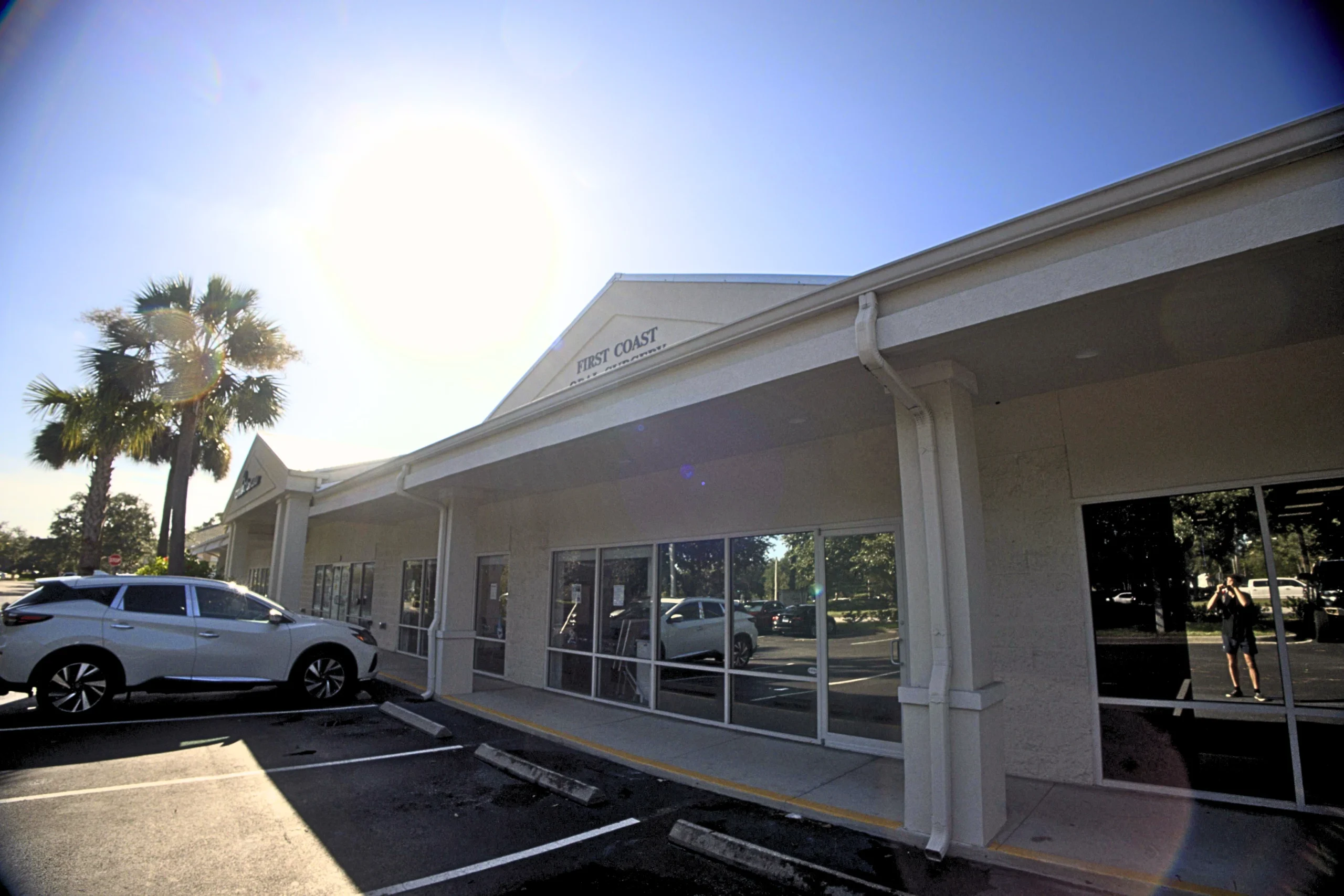Replacing Teeth with Dental Implants
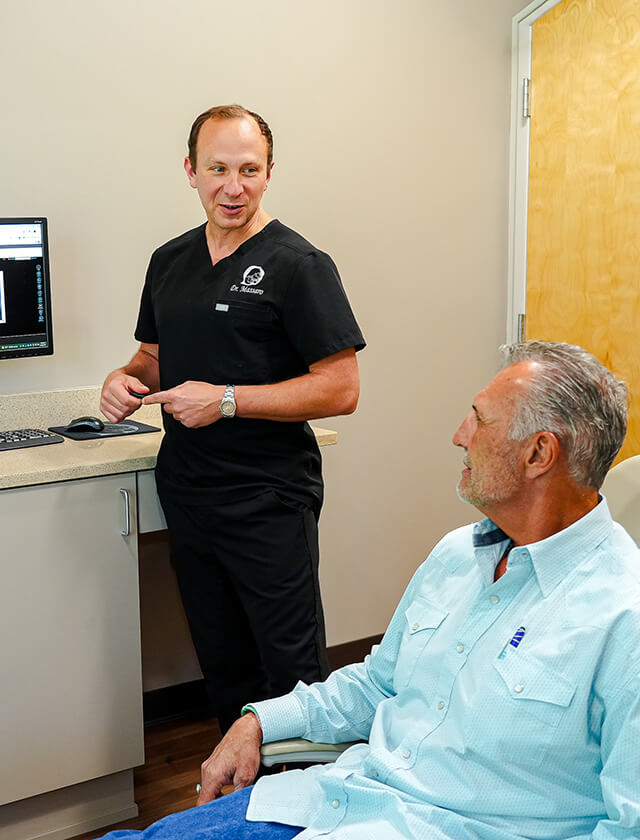
Restoring Your Confident Smile
Missing teeth can affect more than just your smile. They can impact your ability to eat comfortably, speak clearly, and feel confident in social situations. At First Coast Oral Surgery, we understand that your smile is a vital part of who you are.
Our advanced teeth replacement solutions are designed to restore not just your teeth, but your quality of life. With options including state-of-the-art dental implants and innovative All-on-4® treatments, we can help you achieve a natural-looking, functional smile that feels like your own.
Our team of board-certified oral surgeons brings decades of specialized experience to every procedure, ensuring exceptional results with minimized recovery time. We use the latest 3D imaging technology to precisely plan your treatment for optimal outcomes.
Why Northeast Florida Chooses Us
- Convenient locations across Jacksonville, Amelia Island, Orange Park, Lake City & Palm Coast
- Board-certified surgeons with specialized training beyond general dentistry
- Full IV sedation capabilities for maximum comfort
- Flexible financing options including CareCredit and Alphaeon
Dental Implants: The Gold Standard in Tooth Replacement
Permanent, beautiful solutions that look, feel, and function just like natural teeth
Benefits:
- Longevity: With proper care, dental implants can last a lifetime, making them the most cost-effective tooth replacement option over time.
- Bone Health: Unlike dentures, implants stimulate bone growth, preventing the facial sagging and bone loss that occurs with missing teeth.
- Natural Function: Eat, speak, and smile with complete confidence. No adhesives, no slipping with minimal to no dietary restrictions.
The Implant Process at First Coast
- Comprehensive Evaluation: Advanced 3D imaging creates a precise map of your bone structure for optimal implant placement.
- Comfortable Placement: Gentle surgical placement of titanium implants with IV sedation options for maximum comfort.
- Healing & Integration: The implant integrates with your natural bone over 3-6 months, creating a permanent foundation.
- Restoration Placement: Your general dentist places a custom-made crown that blends seamlessly with your natural teeth.
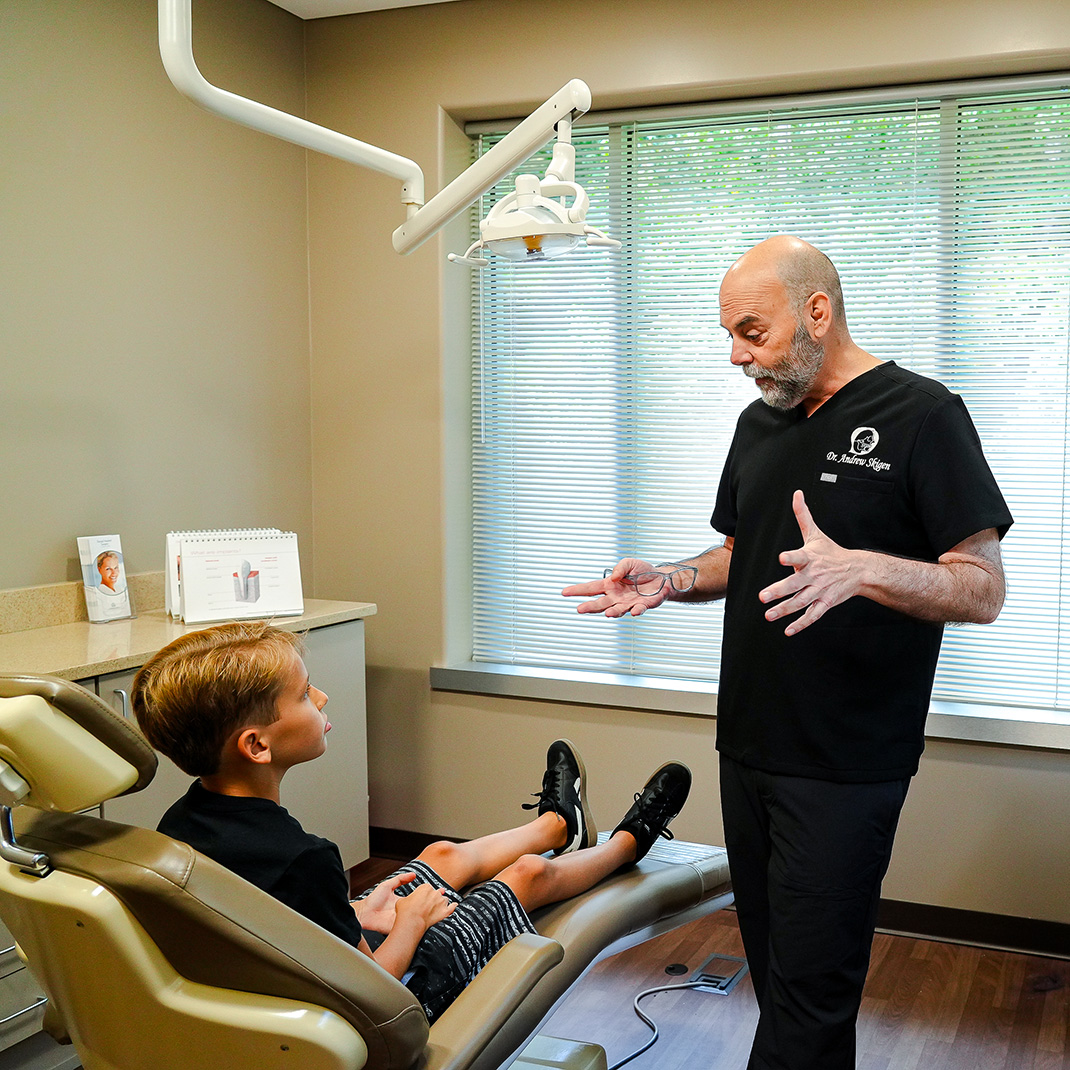
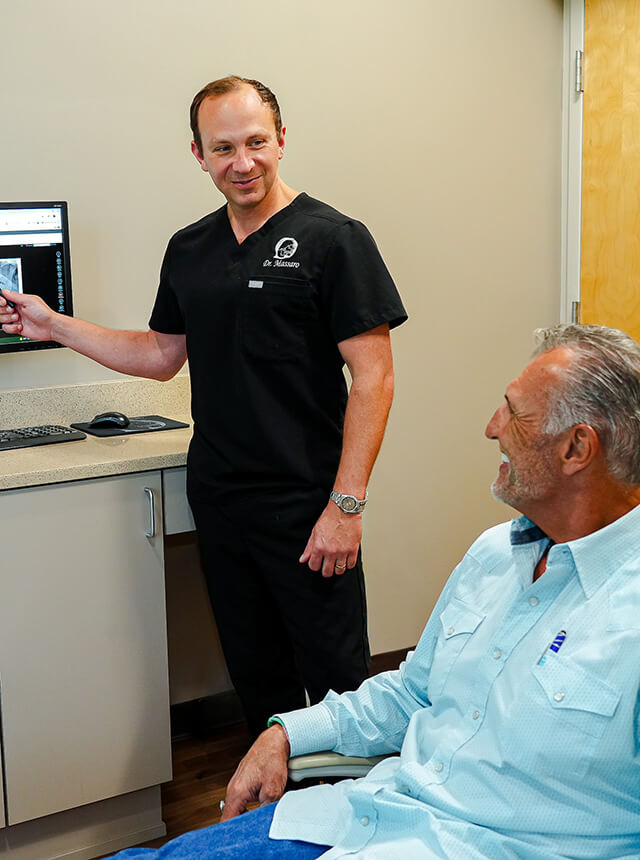
All-on-4® Dental Implants
A revolutionary approach for full-arch replacement with just 4 implants
Transform Your Smile in a Single Day
All-on-4® is a game-changing solution for patients missing most or all of their teeth. Using just four strategically placed implants, we can support a full arch of teeth, eliminating the need for individual implants for each tooth.
This innovative approach means you can walk in with failing or missing teeth and leave the same day with a beautiful, fixed set of teeth. No more removable dentures or extended waiting periods.
Benefits of All-on-4®
- Immediate function and aesthetics – leave with teeth the same day
- Reduced need for bone grafting, even with bone loss
- More affordable than traditional approaches requiring 8+ implants
- Fixed prosthesis that never leaves your mouth (unlike dentures)
Your Implant Consultation Experience
Your personalized consultation at one of our five Northeast Florida locations is the first step toward your restored smile.
What to Expect:
- Comprehensive evaluation of your oral health using advanced 3D imaging
- Discussion of treatment options tailored to your specific needs
- Complete explanation of timeline, procedure steps, and recovery process
- Review of financing options and insurance coverage
What to Bring:
- Current medications list and medical history
- Dental insurance information
- Previous dental X-rays (if available)
- List of questions or concerns
Why Our Consultations Stand Out:
- Board-certified surgeons with specialized implant training
- We take the time to listen to your concerns, explain your options clearly, and answer your questions.
- Same-day consultations available at select locations
- Transparent cost information with no hidden fees

